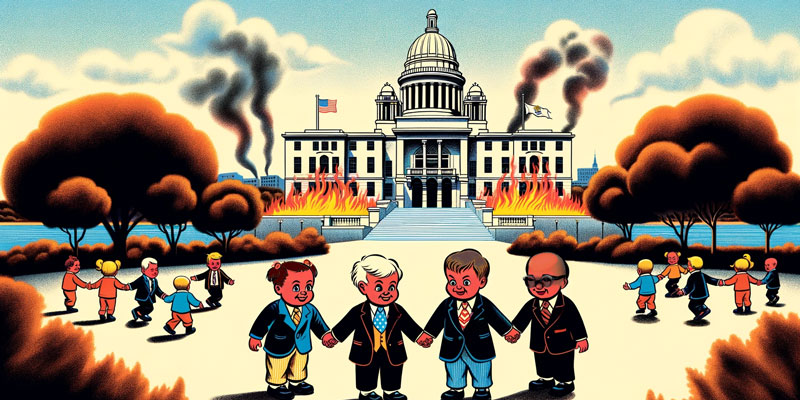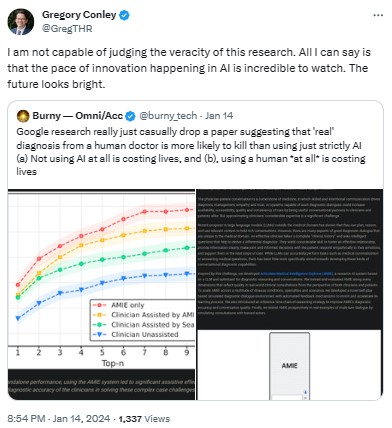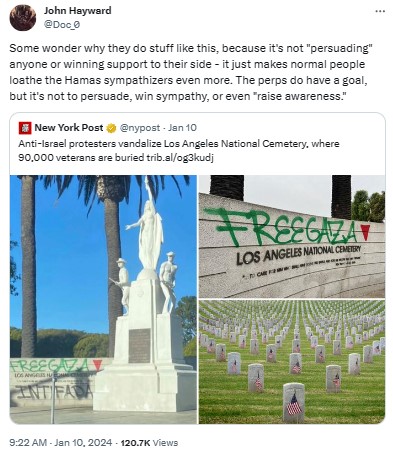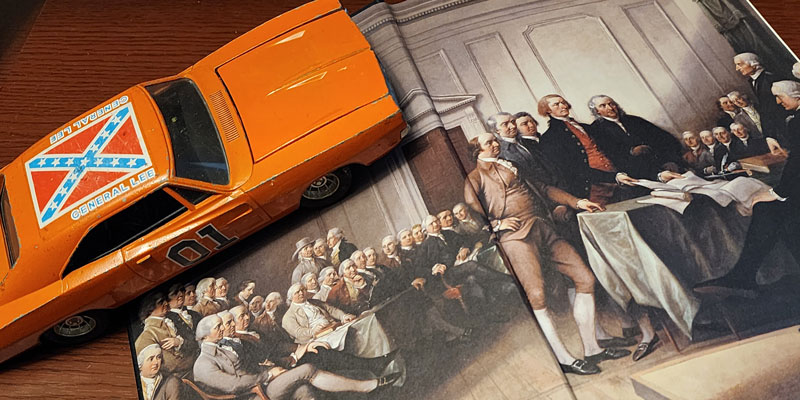Look, I generally disagree with Attorney General Peter Neronha’s politics, but I could put that aside if I thought he were coming to conclusions reasonably. Unfortunately:
 I’m certainly not going to defend predatory investment firms, but read the article. Steward Health Care was already dying. The story is of an equity firm finding a way to make money off it nonetheless.
I’m certainly not going to defend predatory investment firms, but read the article. Steward Health Care was already dying. The story is of an equity firm finding a way to make money off it nonetheless.
Trying to make this a government vs. private sector issue is a terrible framing that distracts from the reality causing healthcare problems, while also making it ripe for private sector predation. Whether Neronha does so deliberately or not, it’s difficult to conclude otherwise than that the distraction is intended to be away from government’s role in the mess.
[Open full post]On WNRI 1380 AM/95.1 FM, John DePetro and Justin Katz discuss:
- Trusting McKee to run the state
- Alviti talks around the problem
- A request to declare RI government a disaster… officially
- SOS on easing voting restrictions in the constitution
- RIPTA bus driver red flag
Featured image by Justin Katz using Dall-E 3 and Photoshop AI.
[Open full post]I warned, when John DePetro and I discussed it some weeks ago, that we shouldn’t jump to the conclusion that the Brown University student shot in Vermont was the victim of anti-Palestinian sentiment. Now, fully aware how polarized we are, I wouldn’t assert that everybody should take Daniel Greenfield’s FrontPageMag article as proof to the contrary, but I do wonder how many people outside of those who seek news from conservative media even know this:
The three Muslim men were returning home from a party on Saturday night when James J. Eaton, a local resident with a history of mental instability, stumbled out of a white clapboard house on the residential street and without a word fired four shots at the three men.
Eaton had been described as “that hippie guy” and “progressive”, an organic farmer who had posted a meme with a definition of “Amerika” that called it “the worst sense of the United States, ie imperialism, corruption and the global exportation of American culture.”
He appeared to be a Biden supporter …
In reality, Eaton supported Hamas.
For progressives, it seems, this isn’t how evidence works. If Arab students are shot, it must be because of anti-Arab bigotry, the details are just coloring.
[Open full post]Arguably the best investigative reporting currently on offer in Rhode Island is coming from the Johnston Sunrise’s Rory Schuler, and this article about the circuitous route Mayor Joseph M. Polisena Jr. took to secure emergency access to a flooded neighborhood in the city is a great example:
Several sources confirm Polisena had been trying to get help from Gov. Dan McKee’s office throughout the weekend, but the governor’s office was slow to offer solutions. The mayor had 30 constituents who were unreachable by emergency vehicles and minutes mattered.
He contacted the state’s federal delegation — they were on it, but once again, it was a holiday weekend, and an inaccessible neighborhood was unacceptable. The town needed vehicle-access to Belfield Drive, and the water was now too deep for the town’s Humvees to cross (the water had not fully receded following the Dec. 18 storm).
After striking out with the governor’s office, sources reveal Polisena worked back channels to reach Washington D.C., starting with Helena Foulkes, McKee’s Democratic rival (he beat Foulkes to the nomination in 2022).
Foulkes, who serves on Johnston’s School Building Committee, connected town officials with former Rhode Island Gov. Gina M. Raimondo, who now serves as the U.S. Secretary of Commerce. Raimondo connected Polisena’s office to U.S. Secretary of Transportation Pete Buttigieg.
On Wednesday morning, Polisena provided an emergency agreement he signed with the Rhode Island Department of Transportation (RIDOT), seeking Federal Highway Administration (FHWA) approval for a “temporary emergency locked gate access to Interstate 295 from Belfield Avenue in Johnston,” which ultimately permitted the town to start construction at 6 a.m. Wednesday morning.
Step 1 in any analysis is to evaluate the situation, and I see three relevant problem points, here.
First, the state of Rhode Island has poor infrastructure. This manifests, first, in the fact that roadways, generally, can’t process enough water. This is a full-system shortcoming, spreading blame at the state and local levels. Activists attempt to relieve that blame by claiming we’re facing unprecedented problems related to global climate change, but that’s no excuse. Even if you believe that’s the reality, priority #1 of elected officials is to ensure that our infrastructure can accommodate the change. It manifests, second, in the layout and development of roadways that leads a single point of egress for this neighborhood. That, frankly, is mostly a local problem.
Second, current regulation is a problem. Understandably, the governments overseeing highway construction, whether federal or state, have an interest in preventing major throughways from becoming subject to cross-traffic. Route 95, for instance, can’t become Route 1. They serve different purposes. Nonetheless, provision must be made for emergencies, and it shouldn’t take extreme circumstances to lay the foundation for local governments to build access to highways for emergency purposes.
Third, the combined effect of all of the above is to put a huge amount of discretionary power in the hands of a few connected people. This is perhaps the greatest of the downstream consequences of our current system. Some speculate that McKee is not friendly with Polisena, so he wouldn’t help. That can only be the case if we’ve created a situation in which special help is needed and it has to filter through the governor’s office. The fact that the Foulkes->Raimondo->Buttigieg route appears to have worked does not change the problem; it only makes it a national problem. It’s not good that these people have discretionary authority over something so predictable and so local.
It helps to imagine a specific situation when testing these systemic questions. Imagine the mayor of Johnston were a Republican, and imagine further that he (or she) had been spotted as somebody primed for the national stage — perhaps a Presidential contender, one day. Would Buttigieg have granted him (or her) the political coup of proving to be somebody who could get things done for constituents? One needn’t be very cynical to respond, “no,” which means that the direct and specific emergency needs of people in that neighborhood are vulnerable to entirely unrelated and prospective political calculations of partisans.
That’s really not healthy, and Rhode Islanders across the political spectrum should be asking how we can move our system to something that isn’t so obviously insane.
Featured image by Justin Katz using Dall-E 3 and Photoshop AI.
[Open full post]Amidst all the other happenings in Rhode Islanders’ lives, it’s worth a moment to consider that we’ve reached the point that the General Assembly is delving into such levels of micromanagement as housing setbacks and in-law apartments in local zoning. That’s a sign that we’re doing things wrong.
In the mania of the day (or simply because Borg-like progressives increasingly dominate conversations), I’m seeing people mention it less frequently, but one of Rhode Island’s most-endearing qualities is the heterogeneity of neighborhoods across the state. The genuine diversity of living possibilities in the Ocean State is incredibly attractive, intrinsically characteristic, and worthy of preservation. These are propositions that should enjoy agreement across the political spectrum… unless it is unthinkingly swamped by moral sloganeering and simplistic economic thinking.
Here’s a straightforward point that only seems counterintuitive because our society has gone utterly insane: You don’t get diversity from the top down. You get diversity when people are free to pursue their unique preferences. Genuine diversity is unavoidably organic. It’s a balance of completely atomized individualism with natural group formation. Complete diffusion is salvaged by the human need for community so that unique communities form.
Think of it in terms of neighborhoods. If every resident pursues the extreme of individualism, the block looks like an incoherent mess. If people with compatibly unique personalities congregate, the neighborhood gets character. Every time the top of the Rhode Island power structure decides We the People cannot be trusted to make community decisions, it is implicitly demanding greater conformity.
The practical politics and incentives are easy to understand. Because it’s difficult to win over majorities across dozens of communities, special interests move up the ladder (backed by a relatively small group of noisy do-gooders) and make it in the interest of state-level politicians to tell Rhode Islanders how they ought to live. You can buy a Speaker of the House or a few dozen legislators more cheaply than you can buy majorities of local councils and boards across the state.
In this reality, we see the importance of maintaining a baseline shared truism among the broader population that such matters are not the business of those fungible officials. No law of the universe says housing has to increase in a particular area. I don’t like protectionism or tight local zoning, either, but the value of freedom and self-determination is so immense that we should insist that advocates do the work of persuading the people, rather than buying off a handful of powerful politicians to impose tyranny with the hope that it might do some good for some people in the short term.
Featured image by Justin Katz using Dall-E 3.
[Open full post]On WNRI 1380 AM/95.1 FM, John DePetro and Justin Katz discuss:
- McKee’s State of the State
- Forcing Johnston to use a back door to keep residents safe
- Amore invites voter fraud with same-day, immediate-residency proposal
- The cost of the soccer stadium
- “Rumors” about a new Washington Bridge
Featured image by Justin Katz using Dall-E 3.
[Open full post]Such information as this, tweeted by Gregory Conley, is important to keep within your awareness:
Such exploration is valuable, but we need strong personal and cultural safeguards against abuse. Earlier this week, the Dall-E 3 AI (via ChatGPT) I use for many of the images on this site refused to add the Confederate flag on top of the General Lee from the Dukes of Hazzard. Even putting aside errors and the sci-fi talk of AI’s developing its own hostile intentions, we have to wonder what medical AI will refuse to do or, conversely, insist on doing.
On the human level, talk about how “using a human [for medical treatment] *at all* is costing lives” is a plea to shift diagnosis away from a human being in whose eyes you can look to other human beings who may have no interpersonal medical experience at all.
[Open full post]Over the course of several tweets, John Hayward provides an explanation of why the Left uses tactics that seem sure to bother people rather than win them over, starting here:
In brief, these are the shock troops so their slightly more socially legitimate allies can promise to make the disruptions go away for a political price. The deceit is that the disruptions never go away; there’s always another cause.
The biggest mistake normal folks make is to think the purpose is persuasion. It’s not. It’s power, pure and simple. The activists want to assert power to disrupt your life so you’ll exchange political power for relief.
For this reason, it would not be the sort of gotcha question that journalists typically direct at Republicans to ask Democrats whether they support these tactics, and then to remove from office any who will not actively oppose them. If they don’t oppose them, they implicitly support them.
[Open full post]By political design (one suspects), discussion of American history has lost something recently. People commonly suggest it’s been “dumbed down,” but that’s not the definitive change. Rather, it has lost the principles of liberty and mutual respect. I have in mind this tweet from one-time Anchor Rising contributor Patrick Laverty:
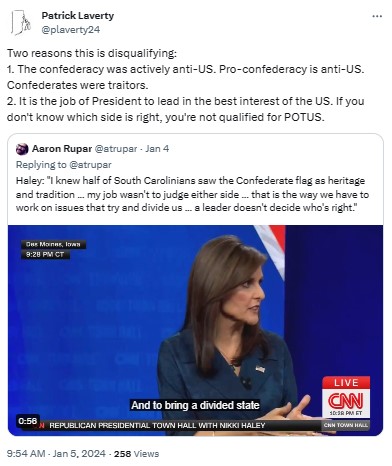
Knowing and respecting Patrick, I’d insist it would be too easy to conclude that he’s being disingenuous with his first point. Nonetheless, follow the link and watch the video clip. Haley didn’t say it wasn’t her job to decide whether the Confederacy was wrong in its time. She was saying that, in her time as South Carolina governor a century and a half later, a large portion of the people whom she was elected to represent “saw the Confederate flag as heritage and tradition.”
You can like it or not, but symbols change over time. For an illustration of this fact, spend some time tracing common sayings and symbols back to their origin and then listen for them in casual conversation. You’re bound to overhear soccer moms with children at their knees using phrases they’d never utter in front of minors if anybody still associated them with the gross or offensive images they once represented. Just imagine the hysteria of a basket case thinking a circle jerk was a cake walk.
By the time people of my age and Patrick’s turned on the TV to watch The Dukes of Hazzard, the Confederate flag was had been diluted to merely a symbol of the countrified rebelliousness of the good ol’ American South. Maybe it was wrong for the country to allow that to happen, but happen it did. If viewed with respect for fellow citizens, Haley’s differentiation was between those who, when contemplating the Confederate flag, thought of their nearest of kin and local communities of the mid-to-late 1900s, and those for whom it still represented the enslavement and brutal war of the mid-1800s. It’s not fair of Patrick to call the former “anti-US” and “pro-Confederacy,” in its original sense. Consider how many people respectful of the Confederate flag volunteered to fight for the United States in its wars of the Twentieth Century.
Actually, something more than “not fair” is going on, here. To Patrick — who, I’ve no doubt, is simply stating a shared sentiment of his Northeastern social cohort — all those people are simply disqualified from being represented by politicians who share their views. If you’re searching for “un-American” sentiments, that ought to be pretty high on the board. Even respecting the rubes’ views enough to give them consideration is “disqualifying” in the eyes of comfortable Northeasterners.
At the risk of being declared a “disgrace to humanity,” I’ll admit my opinion that we’ve lost something by so utterly rejecting the symbol that the Confederate flag had become by the time I was a child. Maybe our culture has since forgotten, but by the 1980s, the flag had become tied into Americans’ sense of themselves as rebellious believers in liberty, representative government, and voluntary association. Yes, that transformation brought with it more than a little irony, but culture and symbols don’t have to maintain everything in strict consistency (and history isn’t so straightforward, anyway).
When the British Empire became oppressive to the interests of the colonists, we rebelled and formed our own government, which permitted the voluntary association of territories, and in a strict sense, the Confederacy rebelled in that spirit. Nonetheless, by our historical understanding of ourselves, Americans collectively determined that this right of self-governance was overbalanced by the evil of slavery and the right of individuals to have voluntary control over their own lives, and so the Civil War came to a righteous end. Through the tension of these principles, we sharpened our understanding of freedom and honed the balance between a community’s right to live according to its own beliefs and the individual’s right to remain free within its boundaries.
In such terms, the notion of Southerners as “traitors” is a category error. You’re not a traitor for wanting your community to leave a voluntary civic union, anymore than expatriates are traitors for exchanging American citizenship for that of another country. If the United States were to leave the United Nations, as I wish we would, supporters of that decision wouldn’t be treason. Advocates for Brexit weren’t traitors against the European Union. There are better and worse reasons for doing such things, but leaving isn’t treason to anybody but dictators. To the contrary, treason consists of pretending continued support while intentionally acting against the group’s interests.
Unfortunately, this is an increasingly foreign idea in New England, where progressives prove by their every policy that they don’t believe in liberty and representation. All that you have — all that you are — is theirs for the regulation. Disagreement is inherently disqualifying, because it is treason against their morally superior march. If your beliefs fall outside of the narrow boundaries of what they find acceptable, you aren’t permitted a substantive vote, whether on issues or on candidates.
Thus does irony rear its head, again: Those who insist the Confederate flag must always and everywhere represent the evil of slavery wind up with a political philosophy that disenfranchises their countrymen.
ADDENDUM (10:25 a.m., 17Jan2024):
The context of the clip of Haley from above is worth highlighting. As governor of South Carolina, Haley removed the Confederate flag from the Capitol. So, what makes her statement “disqualifying” in Patrick’s view is that she gave people who disagreed with her tradition any consideration at all. This is dangerous territory.
Featured image by Justin Katz.
[Open full post]I earmarked this Boston Globe article, which John DePetro and I discussed last week, for one additional point related to this:
“A great scoop can come from anywhere,” said Brian Stelter, a media reporter who previously hosted CNN’s “Reliable Sources” and was a fellow at Harvard’s Shorenstein Center. “Right wing media historically has talked about others reporting, but done very little reporting on its own.”
That’s just not accurate. “Right-wing media” has done a whole lot of reporting at every market, from local to national. The likes of CNN simply ignore it as if it can’t be of real interest. That’s one of the ways they’ve controlled the social narrative over the past however-many decades.
The reality is that the story of the Harvard president’s plagiarism was just too much for the media to ignore, as much as they would have liked to.
Perhaps if mainstream outlets (including the Boston Globe) were to open their minds to different outlets, different stories, and different journalists, they’d discover a wide world of content they didn’t even imagine existed. Unfortunately, I don’t think they want to imagine it because they fear they’ll bring it into being… or at least to the attention of the voters they live to manipulate.
[Open full post]

